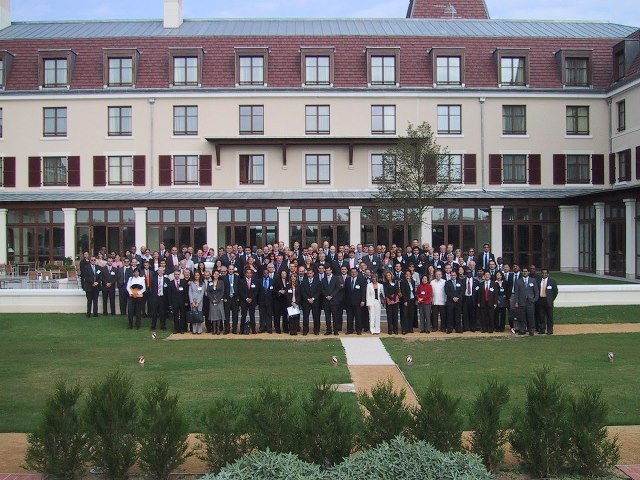The lawyers’ blog When you find yourself in a legal situation that requires advice or representation, choosing the right attorney can make all the difference in the outcome of your case. At Actum Abogados in Girona, we understand the importance of providing our clients with the highest level of legal service. That is why we are proud members of the European Bar Association (EAA). In this article, we will explore the significant advantages of choosing an AEA-affiliated attorney and how this association strengthens our ability to offer strong and effective legal solutions. International Expertise and Global Connections Membership in the European Bar Association provides us with access to a network of legal professionals across Europe. This means that, as a client of Actum Abogados, you not only benefit from our local knowledge and experience in Girona, but also have access to a broad international knowledge base. If your case involves cross-border issues, having a lawyer affiliated with the AEA can make all the difference in understanding and resolving complex legal issues. Constant Update and Deep Knowledge The AEA promotes the continuous training and constant updating of its members in relation to the latest developments in European legislation and jurisprudence. By choosing Actum Abogados, you ensure that our professionals are aware of legal changes and have a deep understanding of the laws that affect your case. This constant update allows us to provide you with solid advice and well-informed strategies. Customized and Multidisciplinary Solutions membership in the AEA fosters collaboration between lawyers from different areas of law and jurisdictions. This allows us to approach cases from a multidisciplinary perspective, often resulting in more complete and effective solutions for our clients. If your legal situation encompasses multiple legal aspects, having an attorney who can access a variety of resources and knowledge can be a considerable advantage. Professional Ethics and Service Quality The AEA sets high ethical and quality standards for its members. By choosing Actum Abogados, you ensure that you work with professionals committed to the highest ethical principles and standards of excellence in legal practice. Our membership in this association motivates us to offer exceptional service and to stay at the forefront of legal best practices. Access to Resources and Opportunities The AEA provides its members with access to a number of resources and opportunities, including conferences, seminars, and legal publications. This wealth of information allows us to stay up-to-date and offer you a quality service backed by the latest knowledge in the legal field. At Actum Abogados in Girona, our affiliation with the European Bar Association is a testament to our commitment to excellence and quality in legal practice. Choosing a lawyer affiliated with the AEA means benefiting from our local experience and a global network of legally competent professionals. When you trust us, you are choosing a team that strives to provide you with the best legal solutions, backed by an ongoing commitment to learning and continuous improvement. Send your inquiry to our lawyers Nombre: Email Teléfono Comentarios: He llegit i accepto la política de privacitat Protección de Datos En cumplimiento de la Ley Orgánica 15/1999 de protección de datos de carácter personal, de 13 de Diciembre, Actum Advocats le informa que sus datos personales se incluirán en ficheros informatizados titularidad de Actum Advocats, que será el único destinatario de estos datos. Su exclusiva finalidad es la gestión de clientes y acciones promocionales y tiene la posibilidad de ejercer los derechos de acceso, rectificación, cancelación y oposición previstos en la ley mediante una carta o email dirigidos a Actum Advocats (datos de contacto en pie de página).
Personal Real Estate Shopper on the Costa Brava
The lawyers’ blog Personal Real Estate Shopper on the Costa Brava: Your ally in the search for properties of dream If you are looking for the perfect property on the beautiful Costa Brava, you know that finding the ideal place can be a challenge. The wide range of properties on offer in this incredible coastal region of Spain can be overwhelming, especially if you are unfamiliar with the local property market. This is where ActumAdvocats can make a difference. What is a Real Estate Personal Shopper? He is a real estate professional who acts as an intermediary between the buyer and the real estate market. The their main goal is to understand the needs and preferences of the buyer and search for the perfect property that fits the requirements. The Costa Brava is known for its impressive landscapes, dreamy beaches and charming coastal towns. Having a Real Estate Personal Shopper who specializes in this region can save you time, effort, and most importantly, help you find the property you’ve always dreamed of. What are the benefits of hiring a Real Estate Personal Shopper on the Costa Brava? Here are some of them: Local experience: A Real Estate Personal Shopper knows the Costa Brava thoroughly and has a deep knowledge of the real estate market in the region. You can be guided to the most exclusive areas, the best locations and the places that suit your needs and style of life Access to exclusive properties: Real Estate Personal Shoppers often have access to a wide network of agents and properties, including those not available on conventional real estate portals. This means you will be able to access exclusive properties and unique opportunities that you may have otherwise overlooked. Time saving: Searching for a property can be a long and exhausting process. A Real Estate Personal Shopper will filter through the options and present you with only the properties that truly fit your needs . This will save you time and allow you to focus on making informed decisions. Negotiation and professional advice: Real Estate Personal Shoppers are experts in negotiation and can help you get the best price and the most favorable conditions for your purchase. They can also provide you with unbiased advice based on their experience and knowledge of the market. In short, having a Real Estate Personal Shopper on the Costa Brava can be the key to finding the property of your dreams efficiently and without complications. Their local expertise, access to exclusive properties, time savings and professional advice are invaluable resources that will help you make the best buying decision. If you are ready to embark on the search for your perfect home on the Costa Brava, consider hiring the services of Actum Advocats</ span> as a Real Estate Personal Shopper. Trust their experience and let them guide you on this exciting journey to the ideal property. Send your inquiry to our lawyers Nombre: Email Teléfono Comentarios: He llegit i accepto la política de privacitat Protección de Datos En cumplimiento de la Ley Orgánica 15/1999 de protección de datos de carácter personal, de 13 de Diciembre, Actum Advocats le informa que sus datos personales se incluirán en ficheros informatizados titularidad de Actum Advocats, que será el único destinatario de estos datos. Su exclusiva finalidad es la gestión de clientes y acciones promocionales y tiene la posibilidad de ejercer los derechos de acceso, rectificación, cancelación y oposición previstos en la ley mediante una carta o email dirigidos a Actum Advocats (datos de contacto en pie de página).
Legal advice for the purchase of real estate in Girona
The lawyers’ blog The purchase of a property is an important decision that involves a series of complex legal procedures. To ensure a successful transaction and protect your interests, having the right legal advice is essential. At our Girona real estate law firm, we understand the complexities of the local real estate market and offer a comprehensive service that will guide you throughout the entire purchase process. In this article, we present how our team of experts can be your ally in the acquisition of property in Girona. Specialized legal advice Our Girona real estate lawyers are highly specialized in real estate transactions and possess in-depth knowledge of local laws and regulations. We offer you personalized advice at each stage of the purchase process, from reviewing contracts to conducting research on the property in question. Our goal is to protect your rights and ensure that the transaction is carried out safely and efficiently. Review and drafting of contracts One of the key aspects in the purchase of a property is the preparation and review of contracts. Our team of lawyers will carefully analyze all the legal documents related to the transaction, making sure that your interests are protected in terms of purchase conditions, contractual clauses and property rights. In addition, we will draft any necessary contracts, adapting them to your specific needs and ensuring that they comply with current laws. Legal investigation and due diligence Before finalizing a real estate purchase, it is crucial to carry out a thorough investigation of the property in question. Our team will be in charge of carrying out a complete legal due diligence, examining aspects such as ownership, the existence of charges or encumbrances, and urban regularity. This process guarantees that you are acquiring a property free of legal problems and gives you peace of mind in your investment. Negotiation and dispute resolution In case of disputes or inconveniences during the purchase process, our team of lawyers will be at your side to negotiate and resolve any problem that may arise. We act on your behalf and use our legal knowledge to seek favorable solutions, thus avoiding possible lengthy and costly disputes. Conclusion Buying a property in Girona requires meticulous attention to legal aspects and a thorough understanding of the local property market. At our real estate law firm, we offer the specialized legal advice you need to carry out a successful transaction and protect your interests at all times. Trust our team of experts to provide you with a comprehensive and personalized service when buying real estate in Girona. Contact us today and start your real estate buying process with peace of mind and confidence! Send your inquiry to our lawyers Nombre: Email Teléfono Comentarios: He llegit i accepto la política de privacitat Protección de Datos En cumplimiento de la Ley Orgánica 15/1999 de protección de datos de carácter personal, de 13 de Diciembre, Actum Advocats le informa que sus datos personales se incluirán en ficheros informatizados titularidad de Actum Advocats, que será el único destinatario de estos datos. Su exclusiva finalidad es la gestión de clientes y acciones promocionales y tiene la posibilidad de ejercer los derechos de acceso, rectificación, cancelación y oposición previstos en la ley mediante una carta o email dirigidos a Actum Advocats (datos de contacto en pie de página).
ACTUM Advocats joins as a member of the European Lawyers Association
ACTUM Advocats joins as a member of the European Lawyers Association ACTUM Advocats joins as a member of the European Lawyers Association ACTUM Advocats, has been accepted as a member of the European Bar Association (AEA), a prestigious organization that represents more than 45,000 lawyers throughout Europe. The AEA is an organization non-profit that promotes collaboration and cooperation between lawyers from different European countries, encouraging transnational legal practice and the free movement of legal professionals in Europe< /strong>. The association offers its members a wide variety of resources and services, including continuing education, networking opportunities and access to a network of lawyers across the continent. The integration of ACTUM Advocats as a member of the AEA is a recognition of the quality of legal services and the commitment to international legal practice. The firm has a team of highly qualified lawyers with extensive experience in a wide variety of legal areas, including civil, criminal, commercial and employment law. Membership of the AEA will allow ACTUM Advocats to keep up with the latest trends and developments in European law, and offer its clients a broader and deeper perspective on legal issues that cover more of a country or jurisdiction. It will also provide the firm with a platform to collaborate with other European lawyers and firms and participate in AEA projects and committees that address cross-border legal issues. The integration of ACTUM Advocats as a member of the AEA is an important step in its professional trajectory and a testament to its dedication to excellence in legal practice. The firm is committed to maintaining its commitment to quality and innovation, and will continue to seek opportunities to improve its services and support clients in their legal needs.
law firm specializing in banking law
law firm specializing in banking law Why do you need a lawyer specializing in real estate and urban planning law for your neighborhood community? As a homeowner in a community of neighbors, it is likely that at some point you will find yourself in a situation where you need legal advice on matters related to real estate or the use of common areas. For this reason, it is important to have a lawyer specialized in real estate and urban planning law who can provide legal assistance to communities of neighbors. At our law firm in Girona, we offer legal assistance to communities of neighbors in all aspects of real estate and urban planning law. Our lawyers are highly qualified and have experience in the drafting and review of lease contracts, the resolution of conflicts related to the use and enjoyment of common properties, advice on matters of urban planning and planning, among others others Why is it important to have a lawyer specialized in real estate and urban planning law? First, a lawyer specializing in real estate and planning law can provide expert legal advice to the neighborhood community on complex property and urban planning issues, which are often difficult for those inexperienced in the field to understand. In addition, a lawyer specializing in real estate and planning law can help resolve conflicts between neighbors or between neighbors and the community of neighbors in general. Conflicts can arise due to the use of common areas, the payment of common expenses, the maintenance of the property, among others. In these cases, a lawyer specializing in real estate and planning law can intervene and find satisfactory solutions for all parties involved. In short, having a lawyer who specializes in real estate and planning law can be essential to ensure that communities of neighbors are well advised and legally protected in any situation. If you need legal assistance in real estate or urban planning matters, do not hesitate to contact our law firm in Girona. Our specialist lawyers will be happy to help you.
what are the steps to create a society in Catalonia
How to create a Society? How to create a Society? If you are interested in setting up a company in Catalonia, whether it is a limited liability company (SL) or a limited company (SA), there are several important steps that you must follow to ensure that everything is done correctly and in accordance with the law When taking the step and deciding to create a company, we may have many doubts about the procedures that need to be done, how long the procedure may take or what the costs of this operation may be. For this reason, it is important to take into account the following steps to anticipate the expenses, in time and money, that will need to be allocated before having the entity organized so that it can carry out its usual activity. These are some of the steps you need to follow: Choose the type of company Before starting the process of creating a company, you need to decide what type of company you want to create. The choice will depend on several factors, such as the number of partners you have, the responsibility they want to assume, the share capital they have, among others. Choose a name and do an availability search Once you’ve decided the type of company you want to create, you need to choose a name for it. It is important to check if this name is already registered and if it is possible to use it. To do this, you need to do an availability search in the Mercantile Registry. Draw the company statutes The articles of association are a document that establishes the rules and regulations for the company. They must be drawn up in accordance with the law and must be approved by the founding members. It is important that the bylaws are well drafted and clear to avoid future problems. Deposit the share capital The share capital is the sum that must be deposited in a bank account in the name of the newly created company. The amount of share capital will depend on the type of company that is created. Once the share capital has been deposited, a bank certificate must be obtained. Carry out the incorporation procedures After completing the above steps, the incorporation procedures must be done at the Mercantile Registry. These include submitting the necessary documents (statutes, bank certificate, etc.), paying the corresponding taxes and obtaining a tax identification number. Obtain the necessary licenses and permissions Depending on the type of business you are setting up, additional licenses and permits may be required to operate. For example, if it is a food business, health permits are required. It is important to obtain all necessary licenses and permits before starting operations. Sign up for Social Security Finally, it is necessary to register the company with the Social Security to obtain the corresponding affiliation number. This will allow the company to hire employees and meet its tax and labor obligations. In short, creating a company in Catalonia requires following several important steps. If you need help to create your company, it is advisable to contact our lawyers who are experts in creating companies in Girona. This way, you can ensure that everything is done correctly and in accordance with the law.
What should be done if a member of the community does not pay?
What should be done if a member of the community does not pay? One of the duties of vehicle owners in a community of neighbors is the payment of community fees for the maintenance and conservation of common areas. However, it can sometimes happen that some owners stop paying these fees, which can create tension and problems in the community. Prerequisites for judicial or extrajudicial claims If you find yourself in a situation where a vehicle in the community doesn’t pay, the first thing you have to do is check if the community has established internal statutes and rules that regulate this type of situation. If so, you will have to follow the instructions set out there. Otherwise, the Horizontal Property Law states that, in the event that an owner stops paying the community fees, these fees can be claimed in court along with the interest and expenses incurred. To do so, a previous claim must have been made through a burofax with proof of receipt. If the claim has no effect, you can go to court. As for the vehicle itself, the community cannot retain it or take actions that would violate the rights of the owner of the vehicle. However, a number of measures can be taken to pressure the owner to pay the dues. For example, the vehicle can be banned from the community, prevented from using the common areas, and even removed from the community if it is an item that takes up common parking spaces . It is important to remember that all these measures must be adopted in accordance with what is established by the statutes and rules of the community, and always respecting the rights of the owners. In short, if a vehicle in the community does not pay, the best thing to do is to follow the established legal procedures and, if necessary, go to court to claim the debts. Remember that it is always better to seek solutions through dialogue and peace before reaching extreme situations.
What rights do I have if I want to divorce in Girona?
Quins efectes té la negativa a sotmetre’s al test d’alcoholèmia? You will need a lawyer and a solicitor to act on your behalf. If both you and your partner agree to the divorce and all its terms, there should be no problem with both of you using the same lawyer. Your lawyer will be able to recommend a solicitor. Contact us at GironaAdvocats, to find out about our services. The Civil Code of Catalonia regulates three types of benefits that, after a divorce or separation, ex-spouses can request from each other. They are: the compensatory pension, the financial compensation due to work and alimony. Documentation necessary to process the divorce Together with your request for divorce, you will also have to present to the judge the proposal for a regulatory agreement, which will contain what they have jointly agreed on regarding the following points: The amount, if applicable, of the compensatory pension or alimony that one spouse must pay to the other. In the case of common children, the regime of coexistence and custody of them, including the visitation rights of the non-custodial parent. The amount to be paid for child support. Use of the family home. The form, if applicable, in which the spouses continue to contribute to family expenses. The marriage certificate and the birth certificates of the children. The power to approve the regulatory agreement and grant the divorce rests with the judge. 2) Contentious divorce It occurs when only one of the spouses requests a divorce without the consent of the other. The judicial procedure in these cases is longer and more complex and can last from a few months to more than a year. Necessary documentation Again, the divorce petition and proposed settlement agreement must be filed with the judge to request the divorce judgment, along with the marriage certificate and birth certificates of the children. If you and your spouse do not agree on the content of the governing agreement, your respective attorneys will have to negotiate with each other, perhaps also requiring third-party evidence. In the meantime, provisional measures can be adopted on issues covered by the regulatory agreement, such as child custody and alimony. Resources The judgment of the judge regarding the divorce sentence will be submitted to the Civil Registry of Girona, and can then be appealed. One or both spouses can request modifications of the sentence, which will be resolved by a subsequent judicial opinion. Custody of children Custody is attributed to the mother in most cases, especially when it comes to small children, with the exception of proving that it is not in the best interests of the child or children. Recently, Spanish courts increasingly support shared custody when both spouses wish to share visitation rights. Alimony Courts generally only award alimony in situations where one spouse will suffer a serious loss of income as a result of the divorce, for example, if they have given up a career to care for the children and the other spouse takes on the role of sole or main support of the family. The amount of alimony varies from one case to another, but it usually ranges between 15% and 40% of the wealthier spouse’s income. Division of goods Spanish legislation relating to the division of property in a divorce is determined by the local legislation of the couple’s place of residence. In Catalonia, Aragon, Navarre, the Balearic Islands and the Basque Country, for example, the Separation of Assets generally applies. This means that each member of the couple keeps everything they owned before the marriage, and any joint purchases during the marriage are divided based on each person’s investment in their acquisition. Court rulings also place an economic value on non-monetary contributions such as caring for the home and raising children. In the other Spanish regions, including Andalusia, the Society of Gains generally applies. This means that all property acquired during the marriage is considered to belong to both spouses equally, unless they are considered “private property”. Dual ownership applies to income from rentals, businesses, and property acquired with shared accounts or investments. Contact us Are you about to get a divorce or are you thinking about it? If you want GironaAdvocats, specialist divorce lawyers in Girona, to handle your divorce for you, or simply discuss r your options with us, you can contact us with complete confidence to arrange a consultation. We have offices in Vidreres, Girona.
How to know if the bank is charging me more
Quins efectes té la negativa a sotmetre’s al test d’alcoholèmia? The ones that never seem to lose money, even in times of crisis, are the banks. Banks offer what everyone wants: money! And the system is perverse, because if you take the money to the bank, your return can be zero, or very low compared to what is offered. But let’s go to the issue that really concerns us, as customers, to know if the bank is charging me more, if it is applying fictitious fees for maintenance, for overdrafts… It is true that banks have the power to set the prices they consider pos their services, due to the free market, however, there is a regulatory body which is the Bank of Spain, which acts precisely as a controlling element of banking activities, and there are certain regulated banking operations by current regulations. Many banks make significant profits by charging customers additional fees. These are often undisclosed fees that were never agreed upon by the consumer and may even include illegal fees for the bank. In some cases they may be charges for services that were never performed. Any banking entity in the Spanish State must comply with this law and not charge commissions to its customers for the operations, detailed below: Fees for cash income A common case we encounter with our clients is whether it is legal for our bank to charge us for a cash deposit in favor of a direct debit account on their records. These types of commissions, for transfers or income, are not providing service to the customer who makes the deposit, but to the owner of the account, the current jurisprudence has declared them illegal. Overdraft fee The rate that the bank makes us pay, for the loan that the bank gives us, to be able to meet a payment, when the balance of the account is insufficient. Is this type of fee legal or illegal? The answer is no, as long as they do not exceed the limits established by the Bank of Spain. Therefore, it is necessary to know or consult with the banking entity which interest on late payment is being applied to us. SEPA transfers outside Spain Just as no bank should charge us to send money from entity A to entity B in Spain, you should not be charged any kind of commission to send money to any other bank, by wire transfer, as long as it is located in the euro zone. Regulation 924/2009 establishes a principle of equality for transfers of up to 50,000 euros in the SEPA zone. Consult with a banking mediator or take the matter to court Finally, if the bank mediator fails to reach an agreement on the abusive bank charges, there is still the judicial conciliator (which can be taken to the nearest district court) or the district court. Usually, the customer who goes to this extreme does so for a large sum. Another way to challenge abusive bank fees is to contact a consumer association. Actum Advocats
Lawyers Specialists in Banking and Financial Law in Girona
Lawyers Specialists in Banking and Financial Law in Girona At ActumAdvocats, we have lawyers specialized in banking and regulation, who can support all legal issues specific to banking. If you are looking for a firm specializing in banking law in Girona, as an outsourced legal department or to complement your own internal teams, we are your choice. Through the banking and finance practice area we advise our clients, individuals, financial companies , top level financial institutions and entities, in the development of financial operations in Girona, Catalonia and abroad linked to this jurisdiction. The expertise of ourbanking and regulatorylawyers ranges from banking contract law and regulatory compliance and litigation advice to new banking products and financial instruments. With extensive knowledge of banking market trends, the law firm formed by ActumAdvocats, At ActumAdvocats, specialist lawyers in banking law in Girona, we provide both local advice and multi-jurisdictional experience, adopting a… is able to anticipate changes in banking and financial regulation and offer a tailored service to clients such as banks, companies, financial service providers, investment funds and public authorities. For years we have been defending our private clients against abusive banking products, such as preferred shares, swaps, etc. We are also experts in claiming the nullity of abusive mortgage clauses, mortgage defaults, Land Clause. We advise you to recover the money associated with the so-called Single Clause. Don’t stop claiming what is rightfully yours. At ActumAdvocats, lawyers specializing in banking law in Girona, we provide both local advice and multi-jurisdictional experience, adopting a personalized approach to select the teams that best suit the scope of each matter. Do I really need a lawyer specializing in banking law in Girona? Banking law is the branch of law that studies the rules that regulate the operation of banks and banking activities and, in general, all financial institutions. Many financial entities have been approved as banks in order to subject them to banking regulations, which is why banking and financial law are often spoken of together. However, within this field there are also specific rules for each type of entity, be it banks, savings banks, credit unions, financing entities, etc. Matters relating to financial markets and relationships between banking entities and clients are also included in this denomination. Thus, we understand banking activity both from the point of view of business or contractual relations and the organizational system of the entities. If you are looking for advice on banking law in Girona, or if you want to defend yourself against any infringement by your financial institution, we can help you. Feel free to contact us at any time. Lawyers specializing in banking law in Girona. If you want to get more information about our experience in banking law and regulation, click here.












